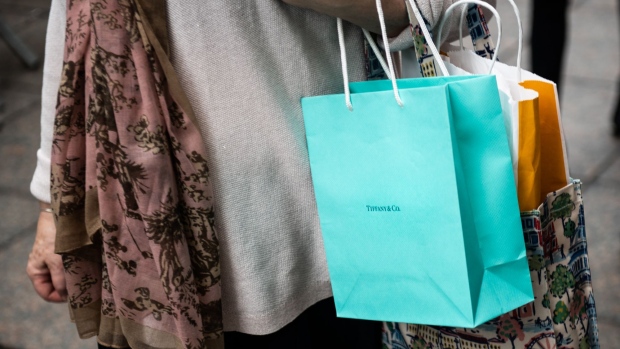Jun 2, 2020
Tiffany dives after WWD reports deal with LVMH is uncertain
, Bloomberg News

Tiffany & Co. plunged after Women’s Wear Daily reported LVMH’s deal to buy the luxury jewelry company is uncertain as the U.S. economy faces widespread upheaval.
LVMH board members arranged to meet on Tuesday to discuss the proposed deal, WWD reported, citing unidentified individuals. Board members are concerned about the Covid-19 pandemic that has disrupted the U.S. economy and growing unrest over police violence, WWD said. They also expressed concern about Tiffany’s ability to cover its debt covenants at the end of the transaction.
Tiffany’s representatives didn’t immediately respond to a request for comment from Bloomberg. LVMH declined to comment.
Tiffany shares, which were halted for several minutes due to volatility, fell as much as 13 per cent, the most intraday since 2015, before closing down 8.9 per cent on Tuesday. The stock slid 3.9 per cent this year through Monday, while the S&P 500 Index fell 5.4 per cent.
The economic fallout from the pandemic has disrupted or derailed a number of prominent deals, including L Brands Inc.’s agreement to sell a majority stake in Victoria’s Secret to private-equity firm Sycamore Partners. If the LVMH-Tiffany tie-up falls apart, it would be one of the largest so far related to COVID-19.
The New York-based jeweler website says, as of June 1, its stores are temporarily closed until further notice. The pandemic has also impacted the company’s ability to offer next-day and express shipping.
The stores went dark in mid-March due to the pandemic shutdown. Some of its locations have had their windows boarded up as protests roil cities across the country.
LVMH’s planned purchase of Tiffany for more than US$16 billion has been the subject of speculation after the coronavirus pandemic suddenly altered the consumer landscape across the globe.
For LVMH, the deal originally made a lot of sense: buying U.S.-based Tiffany would help the Louis Vuitton owner challenge Cartier owner Richemont for dominance in the global jewelry business. But as Americans curb discretionary spending and retail stores temporarily close their doors, growing exposure to the U.S. market doesn’t have quite the same appeal as it did when the tie-up was announced last November.
Prior to the virus lockdown, the 183-year-old Tiffany was struggling with a lull in international tourist traffic and civil unrest in Hong Kong. In the U.S., management has worked to attract younger clientele, though sales have been slow to rebound. Chief Executive Officer Alessandro Bogliolo made China a priority, counting on the market as a growth engine.